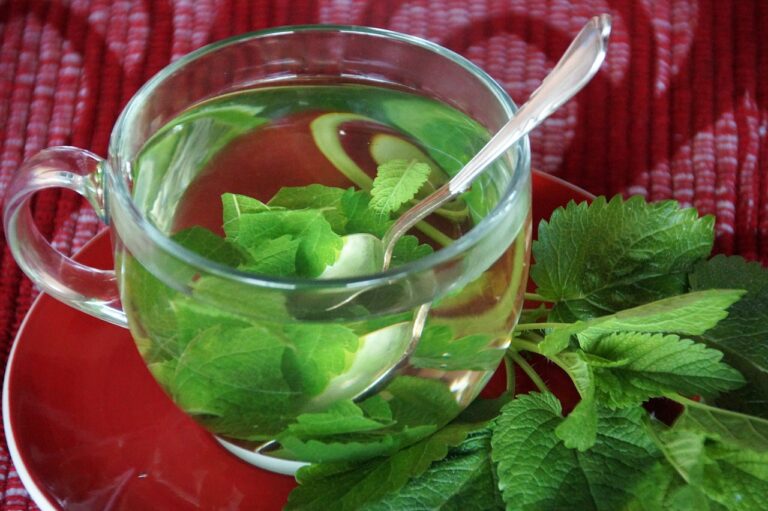Yoga and Tai Chi for Teenagers: Promoting Physical and Mental Wellbeing
11xplay, tigerexch247 login, booki bet: Yoga and Tai Chi are ancient practices that have been around for centuries, promoting physical and mental wellbeing for people of all ages. While many may associate these practices with older adults, they can also be incredibly beneficial for teenagers. In today’s fast-paced world, where stress and anxiety are prevalent among young people, incorporating yoga and Tai Chi into their routine can help them navigate the challenges of adolescence with greater ease. In this article, we’ll explore the numerous benefits of yoga and Tai Chi for teenagers and how these practices can promote overall health and wellbeing.
Physical Benefits of Yoga and Tai Chi for Teenagers
1. Strength and Flexibility: Yoga and Tai Chi both focus on gentle movements and stretches that help improve strength and flexibility. Teenagers who practice these disciplines regularly can enhance their physical performance in sports and other activities.
2. Balance and Coordination: The balance poses in yoga and the slow, controlled movements in Tai Chi can improve teenagers’ balance and coordination, reducing the risk of injuries during physical activities.
3. Posture: Poor posture is a common issue among teenagers, especially with the increasing use of smartphones and computers. Yoga and Tai Chi can help correct posture imbalances and promote better spinal alignment.
4. Endurance: The continuous flowing movements in Tai Chi and the dynamic sequences in yoga can enhance teenagers’ endurance and stamina, making it easier for them to engage in physical activities for longer periods.
Mental Benefits of Yoga and Tai Chi for Teenagers
1. Stress Reduction: Teenagers often face academic pressures, social challenges, and emotional turmoil, leading to high levels of stress and anxiety. Yoga and Tai Chi promote relaxation and mindfulness, helping teens manage stress effectively.
2. Improved Concentration: The focus required in yoga and Tai Chi can enhance teenagers’ concentration and attention span, which can be beneficial for their academic performance and daily tasks.
3. Emotional Regulation: Yoga and Tai Chi teach teenagers how to connect with their emotions and release negative energy, promoting emotional balance and overall mental wellbeing.
4. Boosted Confidence: Teenagers who practice yoga and Tai Chi regularly develop a sense of self-awareness and self-confidence, helping them navigate the ups and downs of adolescence with greater resilience.
Incorporating Yoga and Tai Chi Into Teenagers’ Routine
It’s essential for teenagers to find a balance between their schoolwork, extracurricular activities, and social life. Adding yoga and Tai Chi to their routine can provide them with a much-needed outlet for relaxation and self-care. Here are some tips for integrating these practices into teenagers’ daily lives:
1. Start Small: Encourage teenagers to begin with short yoga or Tai Chi sessions, gradually increasing the duration as they become more comfortable with the practice.
2. Create a Consistent Routine: Establishing a regular practice schedule can help teenagers make yoga and Tai Chi a habit. Setting aside specific times each day for these activities can promote discipline and commitment.
3. Join a Class: Many gyms, community centers, and yoga studios offer classes specifically tailored for teenagers. Participating in a group setting can make the practice more enjoyable and provide teenagers with a sense of community.
4. Use Online Resources: There are numerous online resources available, such as YouTube channels and apps, that offer guided yoga and Tai Chi sessions for teenagers. This can be a convenient and accessible way to practice at home.
FAQs About Yoga and Tai Chi for Teenagers
Q: Can teenagers of all fitness levels practice yoga and Tai Chi?
A: Yes, both yoga and Tai Chi can be modified to accommodate individuals of all fitness levels, including beginners.
Q: How often should teenagers practice yoga and Tai Chi?
A: Ideally, teenagers should aim to practice yoga or Tai Chi at least 2-3 times a week to experience the benefits consistently.
Q: Are there any specific poses or movements that teenagers should avoid?
A: Teenagers with certain health conditions or injuries should consult with a healthcare provider or a qualified instructor before attempting specific poses or movements.
Q: Can yoga and Tai Chi help teenagers with ADHD or other behavioral issues?
A: Yes, the mindfulness and focus techniques taught in yoga and Tai Chi can be beneficial for teenagers with ADHD or behavioral issues.
Q: How long does it take to see results from practicing yoga and Tai Chi?
A: Teenagers may start to notice improvements in their physical and mental wellbeing within a few weeks of regular practice, but long-term benefits can be experienced with consistent effort over time.
In conclusion, yoga and Tai Chi offer teenagers a holistic approach to improving their physical and mental health. By incorporating these practices into their routine, teenagers can enhance their strength, flexibility, concentration, and emotional resilience. Encouraging young people to embrace the ancient traditions of yoga and Tai Chi can set them on a path towards a healthier and more balanced life.







